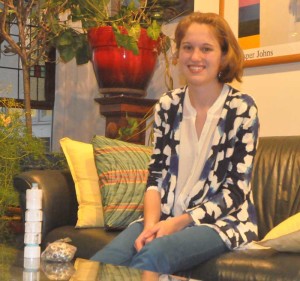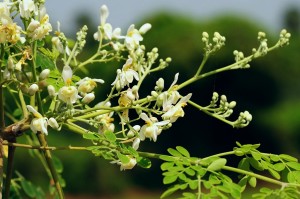Shea among 40 honored by Intel Science Talent Search for work on water purification

Meghan Shea, a senior at Unionville High School, is among 40 high school students who will be honored next month as part of the Intel Science Talent Search. The 40, culled from hundreds of semi-finalists, will compete for the top prize and a $100,000 scholarship.
By Mike McGann, Editor, The Times
BIRMINGHAM — Cast a bit adrift while on a summer science internship, thousands of miles from home, Meghan Shea got to thinking about clean water in mid-2012.
Within weeks, the Unionville High School senior had developed a creative — and cost effective — method to purify water in developing countries. Having turned what might have derailed many into a solution that could mean clean water for millions, Shea has been named one of 40 national finalists in the Intel Science Talent Search, marking her as one of the top young science minds in the entire nation.
She will join her fellow finalists next month in Washington D.C. for a final competition that could lead to a $100,000 scholarship.
But Shea said, just reaching this point — which means she’s earned a $7,500 scholarship and the opportunity to meet with some of nation’s top science minds, and potentially, President Barack Obama — is a thrill.
On selection day in January, she said she was waiting, a bit anxiously, in the office of The Indian Post, the high school’s newspaper, where she serves as co-editor. When the call came, she didn’t recognize the number on her phone.
“I thought it might be a telemarketer,” she laughed. “But when I found out who it was, I was blown away.”
And thus continues an odyssey that seemed anything but promising when it started last summer in Texas.
An aspiring bio-sciences student who hopes to attend a top science school, Shea found herself at Texas Tech University for the Clark Scholars program, which pairs students with elite professors for seven weeks of research.
Shea was teamed with Dr. Michael San Francisco — who had just been promoted to Interim Vice President for Research for Texas Tech — meaning that he was arguably among the best of the best science minds at the university. That was the good news.
The bad news was that San Francisco was increasingly burdened with administrative duties with his new title and had to leave his Lubbock office for a conference in Washington, D.C. the day after Shea arrived, leaving her largely on her own devices, thousands of miles from home and initially wondering why she was even there.
He did leave her with one thing: the germ of an idea involving water purification, something he had worked with on and off over the years.
“I started researching it,” she said, coming across the LifeStraw, a filtering straw that uses some pretty high-tech concepts to filter water.
The LifeStraw was initially designed to cost about $2, making it suitable for developing countries, in theory, but development and material costs have increased enough that the device typically costs more than $20 — making it a boon to hikers and others who need to drink river and lake water, but less so for communities where the median annual household income might be less than $20.
LifeStraw cleans out some 99.999% of contaminants, making it highly effective, but the cost is preventing it from being widely adopted in poor populations. As it works for just one person, the cost of outfitting an entire village quickly became unrealistic for poor communities.
Shea decided to look into something a little less high-tech and less costly, realizing the original problem still hadn’t been solved.
More research followed and she found a promising idea — using the seeds of the Moringa oleifera, better known as the Drumstick Tree — that seemed to have dead-ended in the late 1990s, although Shea said she wasn’t sure why and kept studying.

The flower of the Moringa oleifera, better known as the Drumstick Tree. The seeds from this plant have unique anti-microbial properties and are a natural coagulant, able to draw contaminants from water when combined with a filter system.
The seeds have some interesting properties, as the proteins act as a coagulant, clumping together contaminants to make them easier to filter out. In addition, the plant and its seeds also appear to have anti-microbial properties, and it is now being harvested as a food source in some parts of the world.
Some work had been done on using the seeds for water purification, Shea said, talking about her research, but the water purification process required some 20 steps and a centrifuge, which put it out of reach of poor villages.
“It was a really complex procedure,” she said. “I decided to look and see if there was a simpler way.”
But she needed seeds. That’s where her parents, Peter and Kathy, came in, scouring the Internet for seeds for a plant native to the Himalayas. Her dad, Peter, finally found the seeds on a couple of sites and ordered from both, worried that they might never show up.
But the seeds did make their way to Lubbock, and the younger Shea got to work.
From there, she ran a series of trials to see how the seeds worked in various states, including just broken up seeds, agitated in the water. The results were promising, she said, so she looked to simplify the process.
“I wanted to take it from 20 steps to about four or five,” she said.
But as it turned out, even fewer steps were just as, if not more, effective: break up the seeds, agitate and filter.
The final step: coming up with a way to ensure agitation of the seed pieces with water. Shea said she found some PVC plumbing parts in the lab, discarded from other projects, and used them to design a filter system, with the final stage being sand.
The results are promising, and while Shea notes it probably won’t produce water clean enough to meet Environmental Protection Agency standards, it represents a big improvement for those drinking contaminated water from rivers and lakes in undeveloped countries.
Her hope, she said, is that her filtering system could be distributed to villages and used and maintained with little in the way of outside support.
And while her project is impressive, she notes that the other 39 honorees are just as impressive, if not more so, with projects ranging from cancer research to technology subjects.
The 40 finalists, who were selected from 300 semi-finalists, including Shea, will go to Washington, D.C. for a week-long event, March 7-13, when once again their projects will go through a rigorous judging process. The 40 will be parsed, with the top 10 winning larger scholarships. Eighth, ninth and tenth places win $20,000 scholarships, sixth and seventh win $25,000 scholarships, fifth place wins a $30,000 scholarship, fourth place wins a $40,000 scholarship, third place wins a $50,000 scholarship, second wins $75,000, and the winner gets a $100,000 scholarship.
At the same time, they’ll get to meet with national leaders — in previous years, this has included a visit with the president of the United States – interact with preeminent scientists, and display their research to the public at the National Geographic Society. Top winners will be announced at a black-tie gala awards ceremony at the National Building Museum on March 12.
Shea stands to join some pretty heady company as a finalist. Those chosen to participate in the Science Talent Search over the past 72 years have gone on to receive some of the world’s most prestigious honors. Science Talent Search alumni have won seven Nobel Prizes, two Fields Medals, five National Medals of Science, 11 MacArthur Foundation Fellowships and even an Academy Award for Best Actress.







Of course, her parents are quite proud of her achievements, but Megan’s teachers throughout the years have watched her grow, mature, and develop into a dedicated student with a thirst for knowledge! Bravo, Megan!
A bright young lady that the entire community can be proud of.. Good luck in the coming weeks!!
So very impressive! A high school student solving problems that world leaders struggle with everyday. How to improve the water supply of third world countries, which translates into improving health. We need more young minds like Meghan Shea!